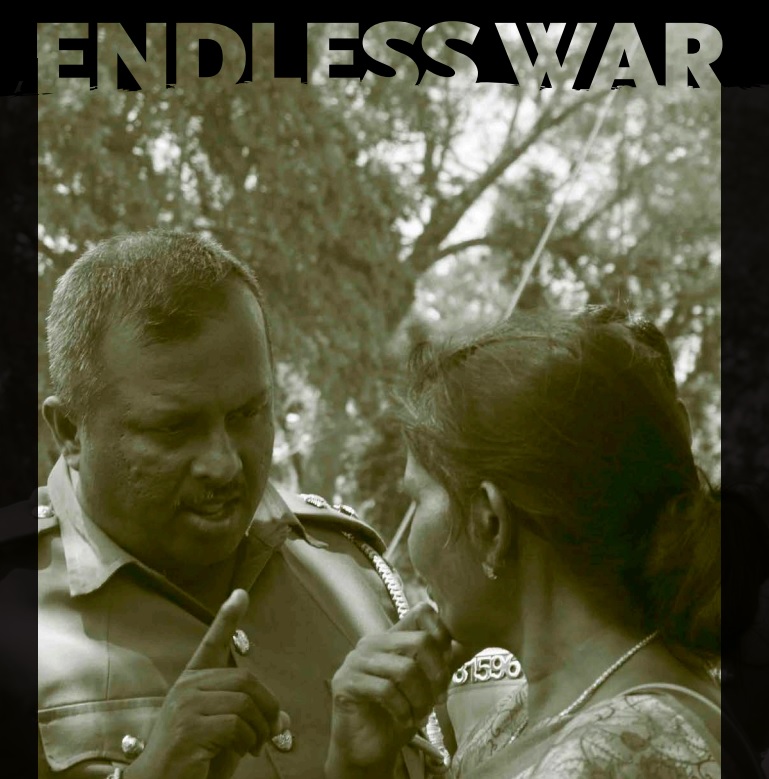
As the 46th session of the UN Human Rights Council continues, the Oakland Institute has released a report which highlights Sri Lanka’s continued militarisation and Sinhalisation of the island as the government continues its campaign to “eradicate the history and culture of the Tamil people”.
The report highlights that whilst the government has repeatedly maintained that the LTTE poses no threat to national security, land grabs the military occupation of the North-East has accelerated in recent years. According to their estimates, there is approximately one soldier for every six civilians in the North-East. This the report states, is to keep “the population in the North-East under constant repression and intimidation”.
The Oakland institute further criticises the UN weak resolution and calls for the council to act upon the Human Rights High Commissioner’s recommendations and establish a field presence to monitor the human rights situation and refer Sri Lanka to the International Criminal Court.
Responding to this report, Jaffna MP C V Wigneswaran, lambasted the complacency of the international community stating:
“If the Military has been able to destroy centuries-old religious institutions in Valikamam North to erect palatial Army Residences on the same land the International Community should shoulder part of the responsibility for their lethargy, indifference and maybe ignorance”.
Wigneswaran further chastised the council expressing disappointment over the draft resolution and calling on the international community to “open their eyes to the realities of the situation in North and East of Sri Lanka”.
Military land grabs
In their report, the Oakland Institute highlights the detrimental role the military has played in the North-East noting:
“The continued presence of the military threatens human rights, livelihoods, and everyday life of the people. The Army, which is stationed on civilian lands, cultivates, and harvests these lands and sells the produce to the landowners. The military continues to run resorts and multiple shops”.
The report notes that in Mullaitivu alone, the military has “acquired more than 16,910 acres of public and private land” and has set up “at least seven Army camps and five naval bases located just 15 km from the village of Alampil to the village of Kokkilai in Mullaitivu”.
The Forestry Department in Mullaitivu has expropriated 32,110 acres of land; the Wildlife Department has claimed 23,515 acres; the Archeological Department has taken 202 acres, and the Mahaweli Authority has taken 4,368. Over 25,000 acres of land have been expropriated for the formulation of the Manalaaru/Weli Oya Sinhala DS Division.
With respects to Jaffna, the Oakland Institute highlights how this occupation has impacted livelihood with Jaffna’s port of Myliddy, “which in the 1980s produced one-third of Sri Lanka's total fisheries” having seen output fall by 90 per cent.
They further highlight that despite over a decade passing since the end of the conflict, 23,000 people in Jaffna are still waiting to be resettled. Over 1,300 people are living in 22 camps whilst thousands live with their relatives or renting houses.
Buddhistisation
In their report, the Oakland Institute highlights that since the end of the war, “67 Buddhist viharas have been established in Mullaitivu District alone under the Archaeological Department”.
“The cemeteries of the LTTE cadres have been levelled; military camps have been set up and war victory symbols erected”, the report adds.
The report highlights that “in the Kuchchaveli DS Division of Trincomalee District, 340,33 acres of land were leased to seven Buddhist institutions for religious activities through a gazette notification issued on 2 October 2020”.
Read the Oakland Institute report here.
Read Wigneswaran’s statement here.
We need your support
Sri Lanka is one of the most dangerous places in the world to be a journalist. Tamil journalists are particularly at threat, with at least 41 media workers known to have been killed by the Sri Lankan state or its paramilitaries during and after the armed conflict.
Despite the risks, our team on the ground remain committed to providing detailed and accurate reporting of developments in the Tamil homeland, across the island and around the world, as well as providing expert analysis and insight from the Tamil point of view
We need your support in keeping our journalism going. Support our work today.
For more ways to donate visit https://donate.tamilguardian.com.

